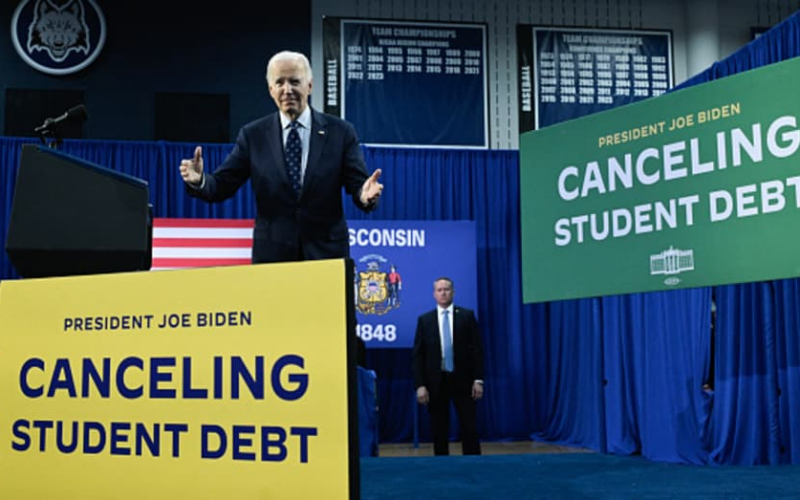The Biden administration has temporarily suspended student loan payments for eight million borrowers enrolled in the SAVE repayment plan following a federal appellate court’s ruling blocking the program. The suspension places these borrowers in an interest-free forbearance as the administration addresses ongoing legal challenges.
The decision came after the U.S. Court of Appeals for the Eighth Circuit, based in St. Louis, granted a request from Missouri and other Republican-led states for an administrative stay. This order halts the implementation of the SAVE program, which was established last summer to offer more favorable repayment terms based on borrowers’ income and household size.
Secretary of Education Miguel Cardona announced that borrowers in the SAVE plan would not accrue interest during this period of forbearance. “The Department will be providing regular updates to borrowers affected by these rulings in the coming days,” Cardona stated.
Currently, borrowers cannot apply for the SAVE plan, nor are applications for other income-driven repayment plans available. The legal dispute began in March when eleven states, led by Kansas, filed a lawsuit in the U.S. District Court for the District of Kansas. A subsequent lawsuit in April, led by Missouri Attorney General Andrew Bailey, challenged the legality of the SAVE program.
The recent court order is more comprehensive than previous rulings, which had only partially suspended aspects of the program. Earlier orders had either blocked specific provisions or were later overturned by other appellate courts.
Mike Pierce, Executive Director of the Student Borrower Protection Center, criticized the ruling, stating that it has caused significant disruption in the student loan system. He noted that the forbearance period will not count towards loan forgiveness, and borrowers are temporarily unable to consolidate their loans.
Under the SAVE plan, payments are calculated based on income and household size, with remaining debt forgiven after 20 to 25 years. The program was designed to reduce payments to 5% of discretionary income, a reduction from the previous 10% rate. The implementation of these changes has now been paused.
The Education Department had been preparing to resume payments for three million borrowers if the Kansas ruling had not been blocked earlier this month. As the legal process continues, the future of the SAVE program and its impact on borrowers remains uncertain.








